An election battle for the identity of Taiwan
- Published
Taiwan, one of the world's feistiest democracies, will elect a new president and parliament on 16 January. The BBC's Cindy Sui explains why this might just be one of its most significant polls yet.

What is at stake in this election?
The fundamental issue at the heart of any discussion of Taiwan is its relationship with China, which views it as a breakaway province that will one day be reunited with the mainland.
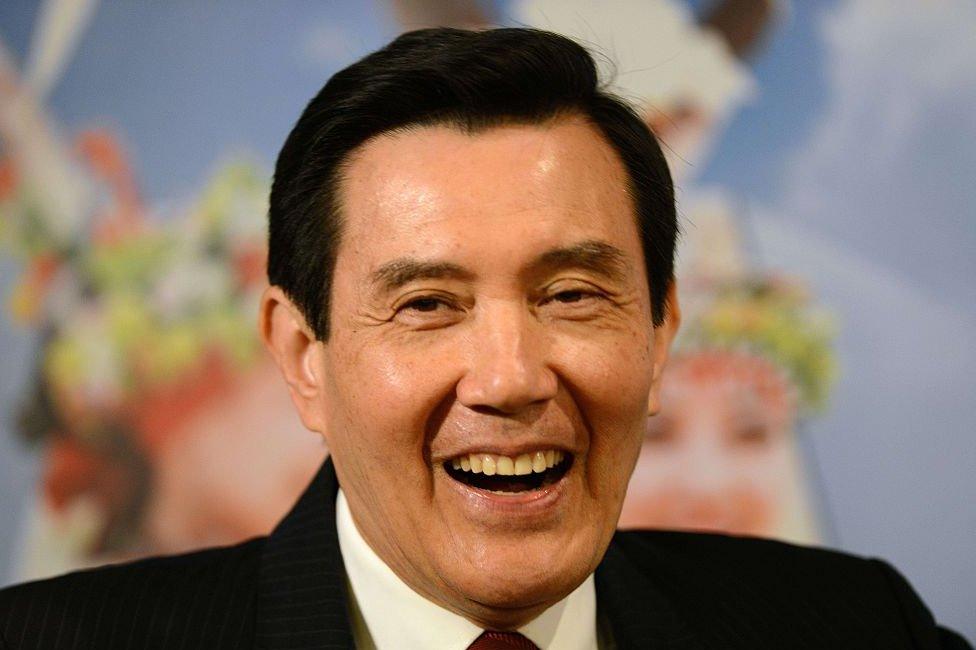
Ma Ying-jeou is known for improving relations with China
In the eight years that President Ma Ying-jeou, from the Kuomintang (KMT) party, has been in power, he has focused on improving relations with China. This era has seen the rivals on the most cordial terms since the end of the Chinese civil war in 1949.
But when he completes his second term in May, he cannot run again.
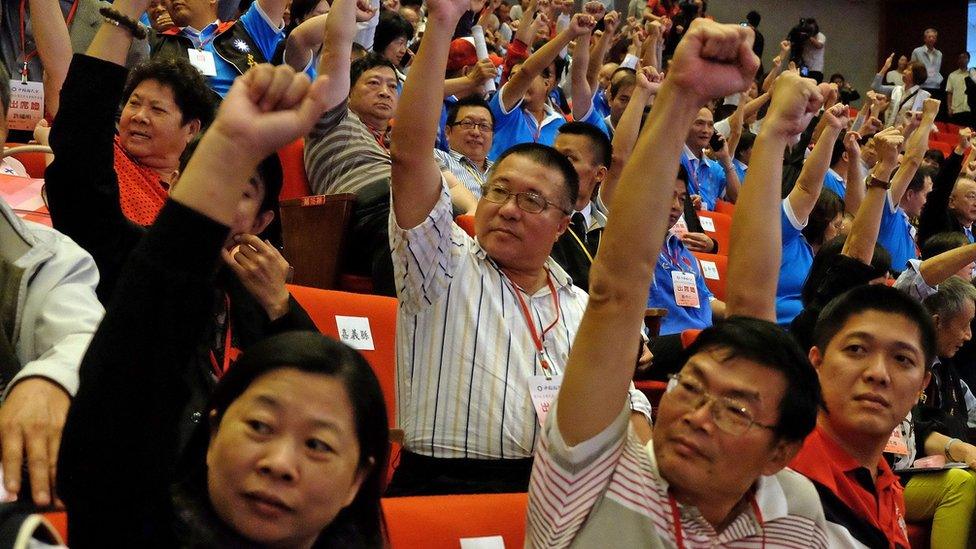
The KMT could lose its majority for the first time in Taiwan's history
And many are uncomfortable with having the KMT, which supports the notion that Taiwan and the mainland are part of one China, continue to negotiate deals and develop relations with Beijing.
These people are expected to vote for the opposition Democratic Progressive Party (DPP), which does not share that view.
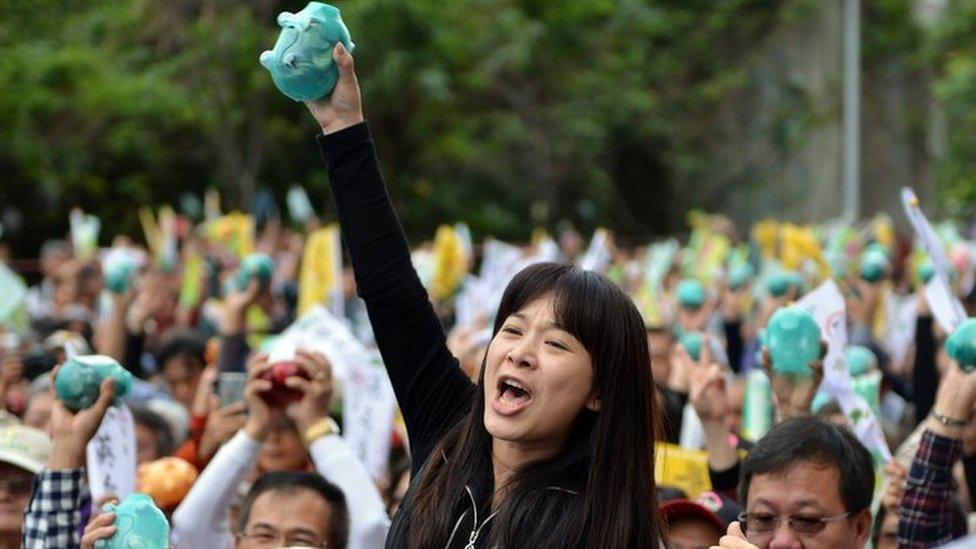
This could be a crucial election for supporters of Taiwan's DPP party, who do not favour ever closer relations with China
Meanwhile the fight for a majority of the 113 seats in the parliament, known as the Legislative Yuan, is also considered critical. Polls show the KMT risks losing its majority for the first time in Taiwan's history.

What do people fear about closer Chinese relations?
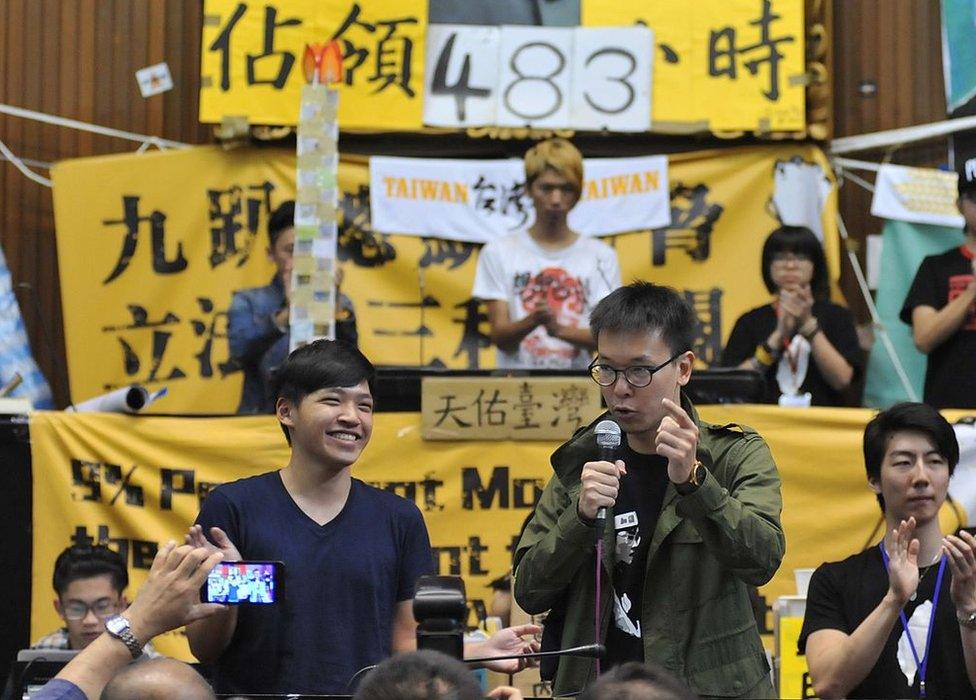
A controversial trade agreement with China last year prompted protests and a brief occupation of Taiwan's parliament building by student activists
More than 20 agreements Taiwan signed with China in the past eight years have brought first-ever direct flights and shipping links, increased cultural and academic exchanges and co-operation on many fronts, as well as around 4 million Chinese tourists here last year.
But many people, while glad to see tensions reduced, fear President Ma's administration and party may be making Taiwan too economically dependent on the mainland.
They fear this could lead to political risks, namely a loss of Taiwan's independence and democracy and an inability to fend off pressure from China to reunify one day.

What are the most important domestic issues?
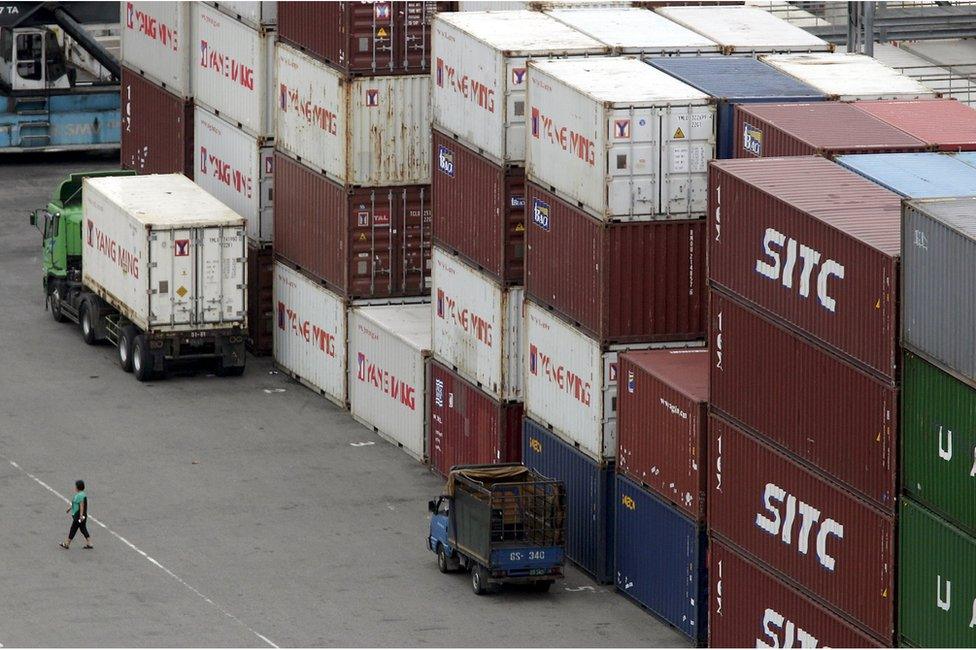
Economic growth in Taiwan was barely 1% in 2014
These elections come as the export-dependent economy, which has historically manufactured products for other countries cheaply, struggles to reinvent itself.
It faces growing pressures, including slowing global demand, and increasing competition from similar economies like South Korea, as well as emerging economies like China.
Economic growth was barely 1% in 2014, while unemployment is nearly 4% - considered high here - and per capita nominal gross domestic product (annual income) is only around US$22,000 (£14,930), much lower than that of its developed Asian neighbours.
Wages are also stagnating, even as companies make profits, leaving many to believe it's mainly businesses, not ordinary people, which have benefited from the closer trade ties with China.

How could the outcome affect other countries?
This is not just about the politicians trying to make the argument for a different kind of relationship with China. There are regional and global implications.
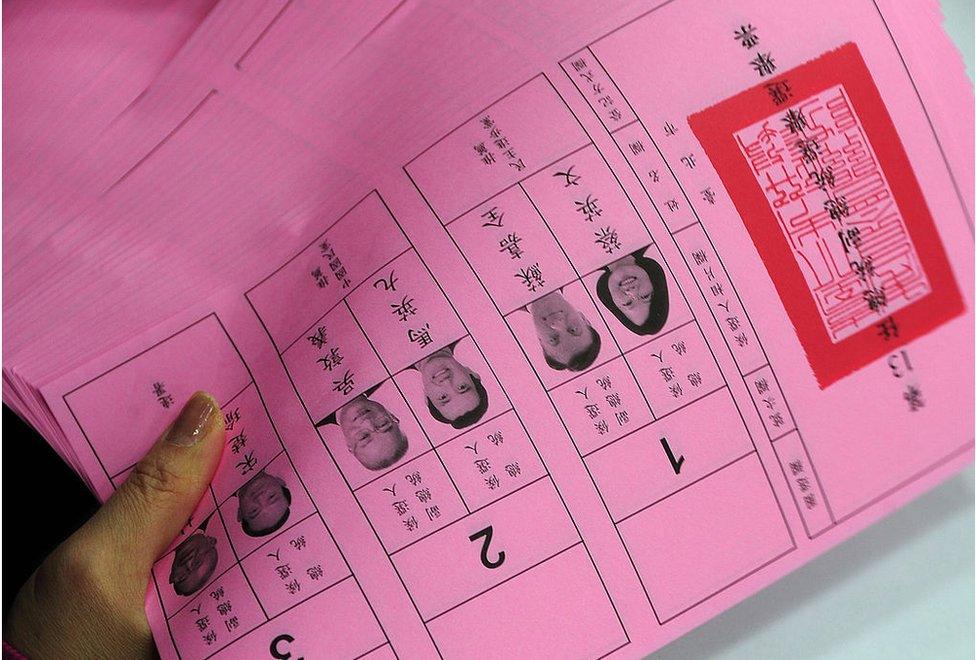
Role model: Although direct presidential elections only began in 1996, Taiwan has become a true democracy, seen as a role model for other Asian countries. It is also the only ethnic Chinese society that has universal suffrage and democratic elections. Taiwan's elections are closely watched not only by China's government, but increasingly curious Chinese citizens and could influence the development of democracy there, given the similarities in language and culture.
Taiwan-China relations: Taiwan is at a crossroads in its relationship with China: who is elected will define this. Trade, tourism and other exchanges could suffer if the China-wary opposition party DPP regains power and antagonises Beijing, whereas a KMT victory could bring about further opening of China's and Taiwan's markets to each other, more economic integration, perhaps progress towards mutual trust and even lasting peace - albeit with the risks to Taiwan's sovereignty.
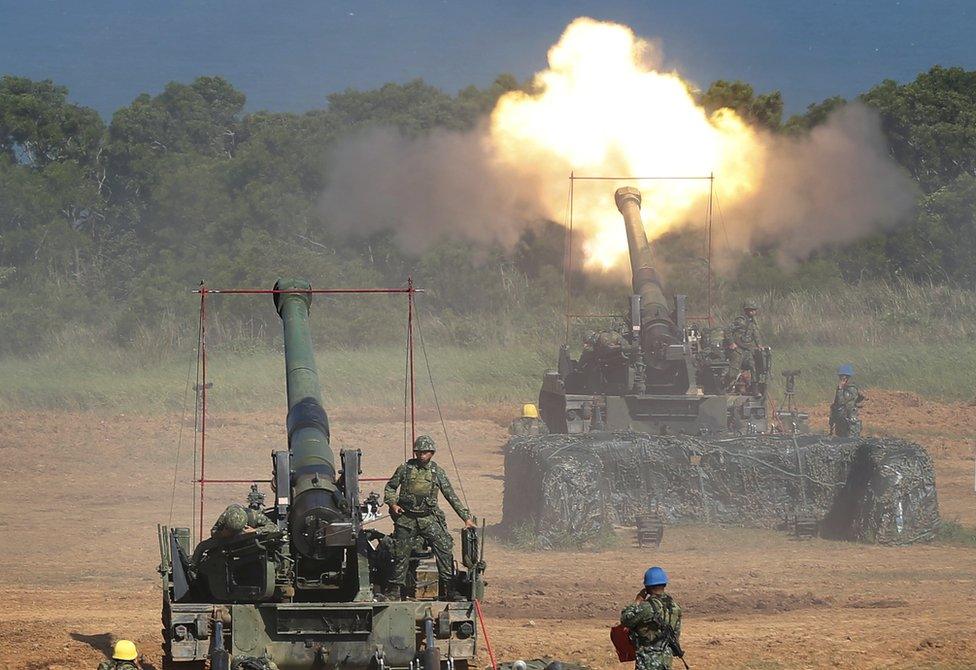
Regional peace: If the DPP is elected and tries to promote Taiwan's independence or separate identity from China, this could cause tensions to resurface. That is worrying not only for Taiwanese people and their neighbours, but also the United States, which is bound by law to provide Taiwan the means to defend itself and could be drawn into a military conflict. As unlikely as war may seem, the two sides have yet to sign a peace treaty. China, increasing military spending every year, also has hundreds of missiles targeted at Taiwan. Ahead of the election, the Chinese government has repeated its strong stance against Taiwan independence. It feels Taiwan was first wrongfully snatched from China in 1895 to become a Japanese colony and later separated because of the civil war, and sees the unification of the country as a central goal.
Who is tipped to win?
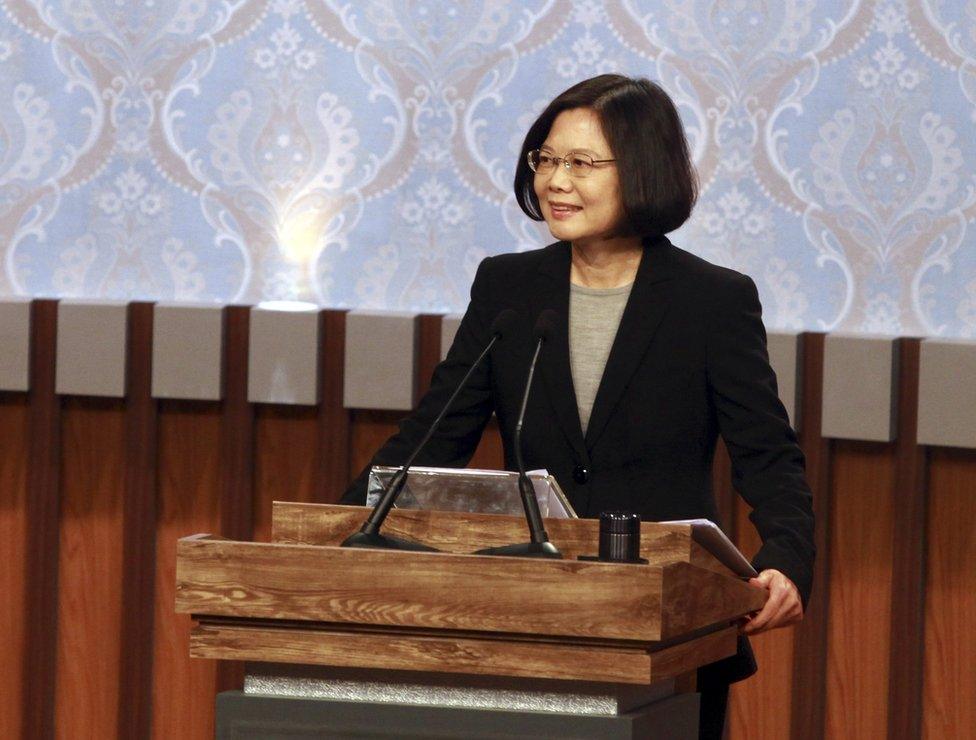
Tsai Ing-wen is currently the frontrunner in polls
Opinion polls by local media show the opposition DPP's candidate Tsai Ing-wen enjoying about 45% of support from potential voters, far ahead of the ruling KMT party candidate Eric Chu's around 20%, and the smaller People First Party (PFP) candidate James Soong's 10%.
Who are Taiwan's presidential election candidates?
But some 25% of the eligible voters remain undecided.
There are 700,000 more eligible voters in this election than the last one, and most of them are young, first-time voters. Some of them prefer new smaller parties promoting environmental and social causes.